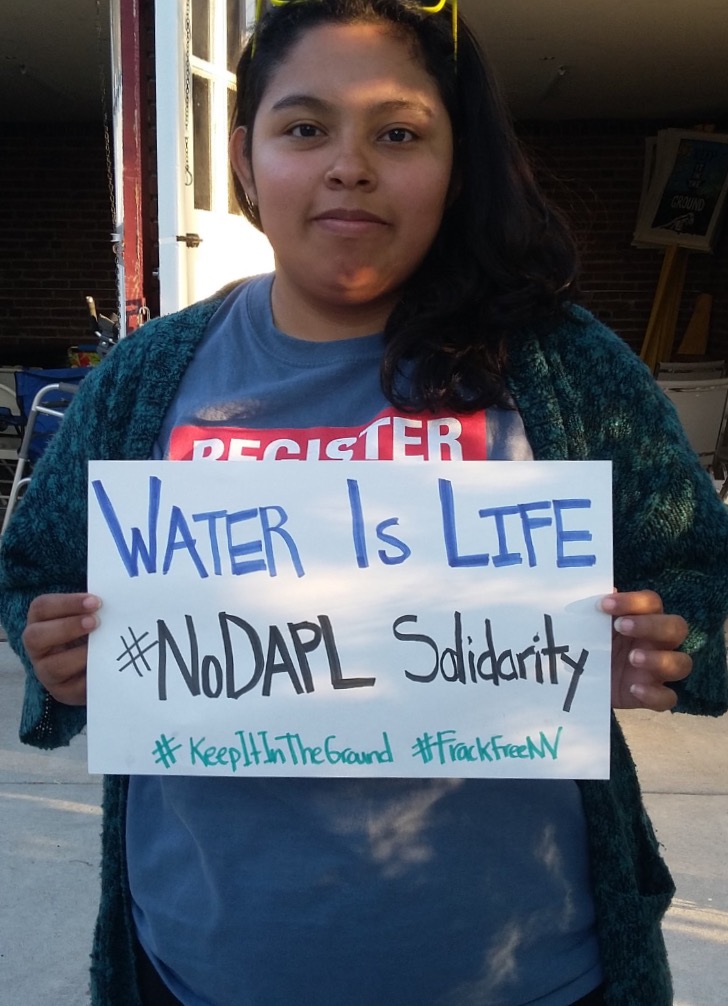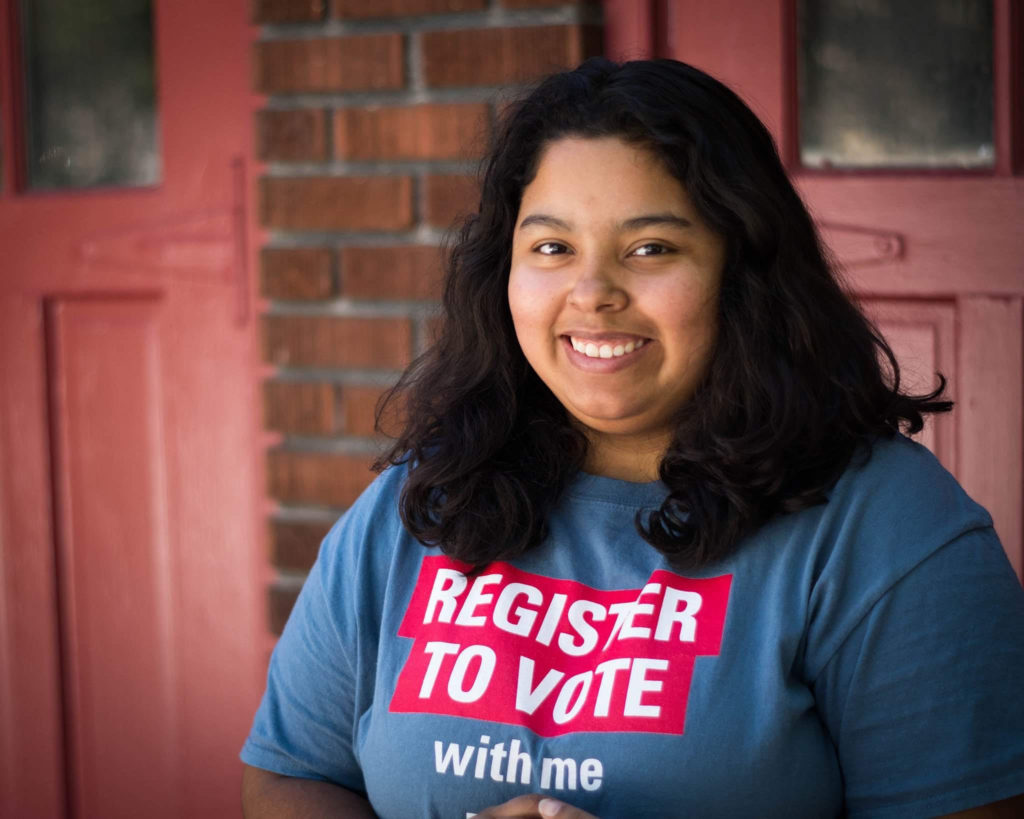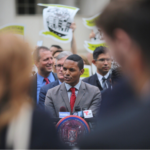
Roxana Lanuza-Alfaro in Reno, Nevada. Photo: Ellen Moore
Latino voters could be the deciding factor in the battleground state of Nevada, where nearly one third of the population is Hispanic.
Roxana Lanuza-Alfaro is a 21 year-old US-born daughter of Nicaraguan immigrants. She’s currently studying social work at The University of Nevada in Reno and works with the Progressive Leadership Alliance of Nevada, an organization that advocates for Latinos across the state.
This year Lanuza-Alfaro is helping to mobilize Latino voters through voter registration and the recruitment of “family defenders” – a program that engages Latinos in the political process and advocates for immigration reform and access to basic resources and services. For Roxana, the only member of her family born in the U.S., these issues are personal, especially as her father — the last member of the family yet to become a citizen — prepares to naturalize.
In Nevada, this election also presents a rare opportunity for significant change as the Democratic Minority Leader Harry Reid retires from the U.S Senate after three decades in office. Senator Reid’s support for comprehensive immigration reform gave him broad support in Latino communities. The two candidates running for Nevada’s open U.S. Senate seat include Republican Joe Heck, an Army reservist and the Democratic candidate Catherine Cortez Masto, a former Nevada Attorney General. If Cortez Masto wins, she would be the first Latina ever to serve in the U.S. Senate.
While Roxana and her team managed to register a significant number Latino voters, she found engaging young voters was consistently more challenging.
Roxana’s story is part of a series of profiles of young immigrants from across the U.S discussing their perspectives on the 2016 election.
This conversation has been edited for clarity and length.
Read more stories from our election coverage.
Where did your passion for immigration issues come from?
When I was a kid my mom would work three jobs and my dad two. Sometimes my dad would only work one so he could take care of me. When they crossed the border, they got their visas and they worked so hard for five years just to save enough money to bring my siblings over. When I turned 5 or 6, I met my siblings. I feel like my family was broken apart for a period of time. As a kid I knew I had siblings but I didn’t know what that meant and it was difficult to transition. But now I have this huge bond with them. They’re my everything.
Considering the communities in Nevada you organize, what are some of the main issues you see taking priority? What do you see people worrying about the most?
When I talk to people, their main concern is about how they can receive citizenship papers. They want to know how they can stop being afraid. Fear is huge here especially when there are ICE (Immigration and Customs Enforcement) announcements. So many parents just hide away. It’s hard for them to even come out and pick up their children because they believe the informants will capture them and they won’t be able to see their kids. With this year’s election, there’s been more fear instilled within the immigrant community. They want to use their voice but they’re afraid of what will happen afterward if they’ve used their name. They want people to realize that they’re here and they’re afraid and what they are doing here is not illegal. They don’t mean harm.
Why do you think young people aren’t as engaged?
Partly it’s education. From what I’ve seen so far, people are disengaged because they feel like the presidential election is a joke. A lot of them think their voice doesn’t count and with the presidential election, they are disappointed in who they have to choose from. They only focus on what’s going on in the mainstream media and they don’t do enough research with issues that affect our community. When we are out there doing voter registration, what we’ve come across is this attitude of, “Why should I even vote? It’s pointless if it’s just presidential.” But it’s not just presidential, it’s our Senate. You need to vote for that as well. The questions on the ballot will affect you. Some students are drawn in, but others aren’t interested and just walk away. The majority of them are distant.
We tend to talk about local elections because we each learn something new each day. We get really passionate about the local elections and what will happen if people vote yes on certain ballot questions. For example, there’s this question on the ballot for the Washoe County overcrowding issue where we don’t have the money to build new schools or remodel those schools, so the Washoe County school question is asking for half a percent of property taxes to go up so they can use that money to build a new school. Hopefully, the students won’t go into second session.
If people say, “No we don’t want property taxes to rise,” within the next two years students will go into a double session, which means one group of students will go in at 6am to noon and another group will go in at noon to 7pm at night. That would impact our communities here quite a bit.
That’s why we rate 48th as one of the worst schools in the whole country, and we wonder why? It’s because we don’t have the support.
Do you believe we can achieve change in this country and in Nevada by voting?
I definitely do, but I think the power lies in using our voices to have our government, not just our federal government, but our state governments hear us out in what’s affecting us. We are the constituents. We are the people. They need to create change for us. No change is ever going to happen if you don’t have the hope or the voice. We need to do something for our kids, invest in our education. These are things that we need.

Download the App here
Fi2W is supported by the David and Katherine Moore Family Foundation, the Ralph E. Odgen Foundation an anonymous donor and readers like you.




